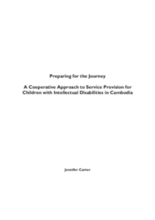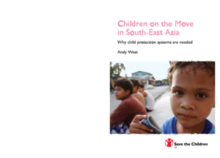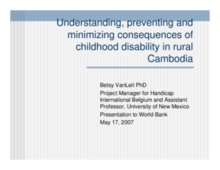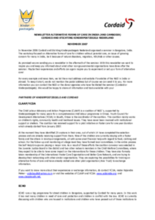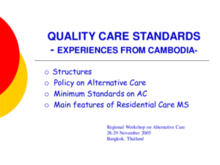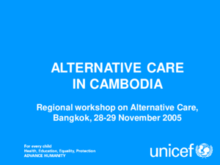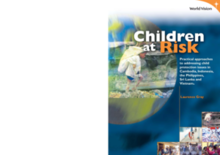This country page features an interactive, icon-based data dashboard providing a national-level overview of the status of children’s care and care reform efforts (a “Country Care Snapshot”), along with a list of resources and organizations in the country.
demographic_data
childrens_living_arrangement
children_living_without_bio
social_work_force
key_stakeholders
Key Stakeholders
Add New DataOther Relevant Reforms
Add New Datadrivers_of_institutionalisation
Drivers of Institutionaliziation
Add New Datakey_research_and_information
Key Data Sources
Add New DataMapping of residential care facilities in the capital and 24 provinces of the kingdom of Cambodia
National estimation of children in residential care institutions in Cambodia: A modelling study
Prevalence and number of children living in institutional care: global, regional, and country estimates
Shaping the national social protection strategy in Cambodia: Global influence and national ownership
Towards a Social Protection Strategy for the Poor and Vulnerable: Outcomes of the consultation process
Country Care Profile: Cambodia
Acknowledgements
Data for this country care snapshot was contributed by partners at Family Care First and UNICEF Cambodia.
Displaying 271 - 280 of 285
The purpose of this study was to gain a better understanding of the challenges and needs of children with intellectual disabilities, their families, and service providers.
This report is a shortened version of a desk review of children’s movements in the context of regional migration (Children’s Migration: Diversities, Exploitation, Participation and Protection in the Greater Mekong Sub-region of South-East Asia, available separately from Save the Children).
This presentation given to the World Bank in May 2007 describes a study conducted in Cambodia on the situation and needs of children with disabilities and their families.
This document is intended to provide concrete advice on how to put the guiding principles common to most child protection actors into practice. Though cultural traditions and customs may require the advice to be adapted to the specific context, the authors believe that the advice provided is grounded in sufficiently broad experience to guide measures that ensure children under five are not separated when this can be avoided, and, if separated, can be reunited with their families as quickly as possible.
This newsletter is from a seminar on alternative care held in Bangalore, India, in November 2006. Designed to spread information on what organizations have accomplished in the year following the seminar, the newsletter includes specific information on progress and methods, as well as contact information for each organization listed.
This document presents the full policy on the alternative care of children in Cambodia.
This presentation was given at the Alternative Care Workshop in Bangkok in November 2005.
This presentation from UNICEF provides an overview of the situation in Cambodia, particulary for children without parental care, and the alternative care system in the country.
Discusses approaches to protecting at-risk children in five Asian countries. Identifies programming and policy measures that effectively address child abuse. Emphasis on committing all levels of society to coordinated practical response.
Outlines national efforts to disarm, demobilize, and reintegrate former child soldiers with respect to specific political contexts. Includes lessons learned, future challenges, and recommendations.

